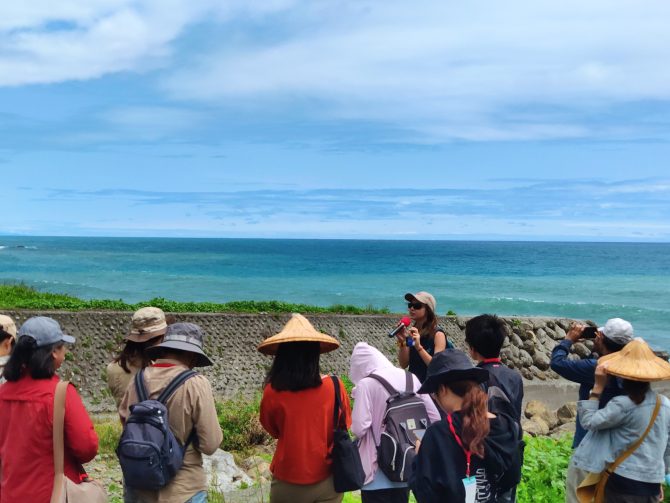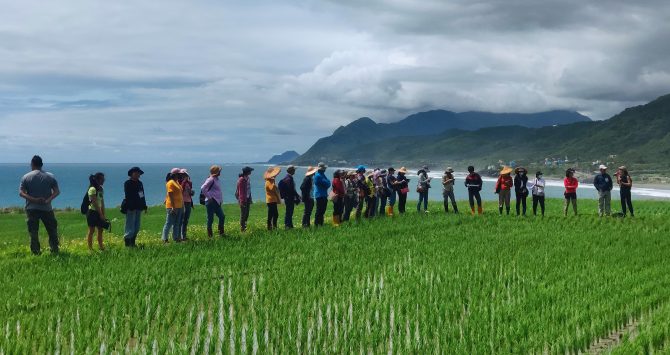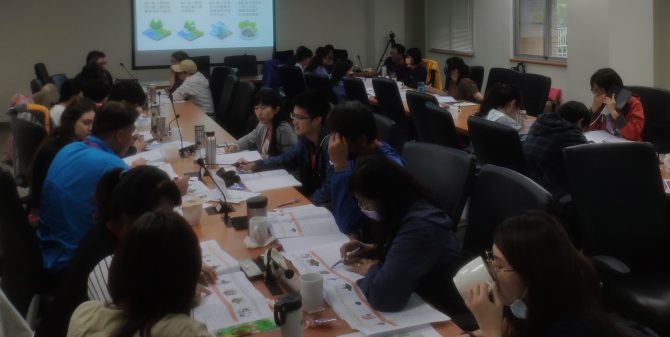SDM Project: Development of locally-sensitive indicators of resilience as a tool for adaptive landscape management in Taiwan’s SEPLS
11.03.2024
SUBMITTED ORGANISATION
National Dong Hwa University (NDHU)
PARTNER ORGANISATIONS
Forestry and Nature Conservation Agency (FANCA), its eight (8) FB district offices (DOFB) and four regional exchange bases of Taiwan Partnership for the Satoyama Initiative (TPSI): TPSI-North (N): Hsinchu DOFB and Luodong DOFB, TPSI-West (W): Dongshih DOFB and Nantou DOFB, TPSI-South (S): Chiayi DOFB and Pingtung DOFB, and TPSI-East (E): Hualien DOFB and Taitung DOFB.
DATE OF SUBMISSION
24/01/2022
REGION
Asia
COUNTRY
Chinese Taipei
KEYWORDS
Taiwan Partnership for the Satoyama Initiative (TPSI), community-based resilience assessment workshops (RAWs), adaptive landscape-(seascape) management
Link
Abstract
Taiwan Partnership for the Satoyama Initiative (TPSI) was established in 2015 as a network of satoyama-minded partners working on revitalisation of SEPLS in northern (TPSI-N), western (TPSI-W), southern (TPSI-S) and eastern (TPSI-E) parts of Taiwan. The Forestry Bureau (FB) with its eight (8) district offices (DOFB) has always been the main financial and institutional supporter of TPSI activities. Prior to introduction of the Project, despite existing rich experiences related to biodiversity conservation, sustainable production and local livelihoods there was a gap in a comprehensive understanding of socio-ecological resilience in TPSI SEPLS.
Thus, the main objectives and immediate outcomes of the Project (duration: January 2021-January 2022) included: by learning from the experience with conducting community-based resilience assessment workshops (RAWs) based on a set of localised indicators of resilience in the Xinshe SEPLS (Xinshe Village, Hualien County, Taiwan; “the Xinshe draft”) and from the integration of RAWs results into its adaptive co-management to: (1) develop locally-sensitive “TPSI SEPLS drafts” reflective of characteristic features of eight (8) TPSI SEPLS, (2) conduct RAWs in eight (8) TPSI SEPLS in order to (a) assess socio-ecological resilience, (b) identify environmental and socio-economic risks and resources, and (c) elicit the most urgent issues and future priority interventions.
Extended outcomes of the Project will include (planned for 2022 and after): local: analysis and integration of RAWs results into adaptive landscape-(seascape) management in eight (8) case study SEPLS, development and implementation of action plans and multi-stakeholder partnerships in them; national: inclusion of RAWs as a monitoring and evaluation tool within Taiwan’s national conservation policy – Taiwan Ecological Network (2022-2025); global: sharing these experiences across IPSI network and with other interested international partners.
The main achievements of the Project included: (1) the first ever development of thematically comprehensive, locally relevant and easily comprehensible localised indicators of resilience for Taiwan’s SEPLS and a systematic implementation of RAWs at a national scale supported and carried out across the network of a government agency – the FB; (2) a nationwide capacity-building effort that enhanced collaboration across TPSI network, strengthened the mentorship role of TPSI regional exchange bases (TPSI-N, -W, -S, and -E), stimulated peer-to-peer learning and connectivity across DOFB network; (3) development of a series of knowledge and capacity-building materials (articles, guidebooks, video-recordings of training workshops) that will be an invaluable asset for guiding future assessments in other SEPLS across Taiwan on a SEPLS-to-SEPLS learning basis; (4) proved suitability of RAWs as a monitoring and evaluation tool within the Taiwan Ecological Network (2022-2025).
The main lessons learned: (1) the SEPLS communities welcomed the Project and viewed it as an opportunity to conduct identification of local issues in a participatory way, stimulate community cohesion and communication, share their concerns with the government representatives from DOFB, and collectively brainstorm the future areas of work; (2) successful implementation of a Project of this scale relied on such important factors as support and interest from all Project stakeholders, pro-active facilitation efforts of the NDHU Team, flexible adjustments throughout the implementation of the Project, openness to iterative learning and knowledge co-production; (3) taking into consideration constructive feedbacks (including challenges faced) of Project stakeholders is essential for its future improvements and long-term continuation.
The Project was relevant to IPSI Strategic Objectives I (a, b), II, III (a, b), and IV (a, b); Aichi Biodiversity Targets 1, 7, 11, 15, and 17; and Sustainable Development Goals 3, 11, 14, 15, and 17.




